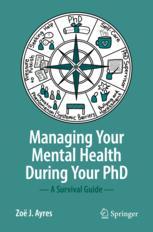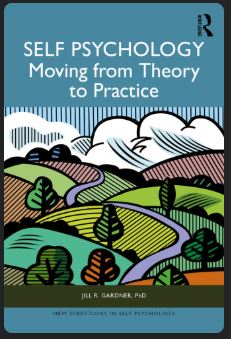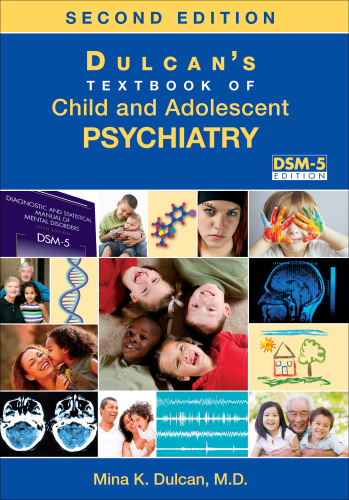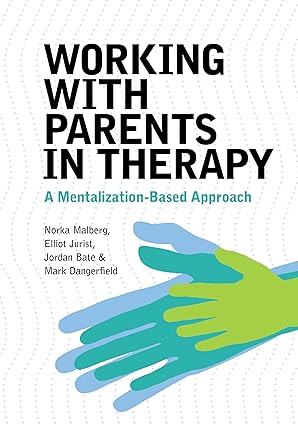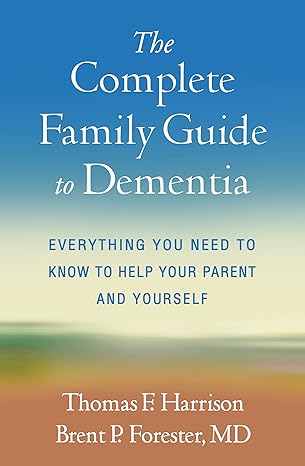Before We Start Given the sensitivity of mental health, there may be topics that are difficult to read or may be triggering throughout this book. To help combat this, this guide has a detailed breakdown of the chapters and the content they cover at the start of the book. Additionally, trigger warnings (words or phrases that give an indi- cation of the topics that will be discussed in the chapter that some readers may find distressing) are placed under each chapter title where intense topics are discussed, to help you navigate the book. I ask you to remember that for the sake of your mental health it is okay to take a step back from a topic, put this book down for a bit, or skip a chapter entirely
چکیده فارسی
قبل از شروع با توجه به حساسیت سلامت روان، ممکن است موضوعاتی وجود داشته باشد که خواندن آنها دشوار باشد یا ممکن است در سراسر این کتاب تحریک کننده باشد. برای کمک به مبارزه با این موضوع، این راهنما تفکیک مفصلی از فصلها و محتوایی که در ابتدای کتاب پوشش میدهد، دارد. علاوه بر این، هشدارهای ماشه ای (کلمات یا عباراتی که نشان دهنده موضوعاتی است که در فصل مورد بحث قرار خواهد گرفت و ممکن است برای برخی از خوانندگان ناراحت کننده باشد) در زیر عنوان هر فصل که در آن موضوعات شدید مورد بحث قرار می گیرد، قرار داده می شود تا به شما کمک کند در کتاب پیمایش کنید. از شما میخواهم به خاطر داشته باشید که به خاطر سلامت روان خود، اشکالی ندارد که از یک موضوع یک گام به عقب برگردید، این کتاب را کمی کنار بگذارید، یا یک فصل را به طور کامل نادیده بگیرید
ادامه ...
بستن ...
When I started my PhD, I truly believed I was going to get my doctorate and change the world. I was filled with naïve optimism and a pinch of privilege thrown in for good measure. Before that point, nothing but my time and effort had stood in the way of my academic achievements. I can safely say that my PhD brought me down to earth—fast. I went from a person that was confident to someone constantly questioning their abilities, worrying for hours on end when my research simply was not working in the way I hoped it would. My research wasn’t a success and from that I inferred neither was I. Eventually, I ended up being diagnosed with clinical depression part way through my PhD. Again, I thought this was a reflection on me—that I was © The Author(s), under exclusive license to Springer Nature Switzerland AG 2022 Z. J. Ayres, Managing your Mental Health during your PhD, https://doi.org/10.1007/978-3-031-14194-2_1 4 wholly inadequate and that I didn’t have the resilience to survive in the aca- demic environment. I felt so very alone. I thought that I was the only person experiencing mental illness, I was undeserving of my PhD position, and I would never be able to graduate. I was constantly bombarded with thoughts that I was not good enough, that I was a failure, and that I was letting every- one (including myself ) down. But, unknowingly to myself at the time, it was the very skills that I had learnt by osmosis during my PhD program that were ultimately going to save my life. When I was at my lowest, at near breaking point, experiencing near daily suicidal ideation, I found myself at a cross- roads. Unsure on how to proceed, I decided to do what any researcher might do: I started researching. I wanted to understand more about why I felt the way I did. What I found shocked me. I learned that approximately 50% of PhD stu- dents experience mood disorders, such as anxiety and/or depression during their PhD [1]. Yes, you heard that right. 1 in 2 of our brightest minds. To put this in perspective this is about 6x higher than the general population [2]. I questioned why had I not heard about this endemic that was inherent within the PhD population? Why had I not been taught more about the risk I might face during a PhD? As I delved deeper, I looked for books, papers, articles and resources talking about PhD mental health and found few. No PhD specific mental health sup- port was offered to me at my institution. In fact, back then, I couldn’t find tailored PhD mental health support at many institutions around the world.1 Over the years I’ve reflected on why this gap exists, and I have come to several conclusions. First, universities focus so heavily on undergraduate men- tal health that postgraduate mental health often falls by the wayside. This is understandable (to an extent) as undergrads typically make up the majority of the student populous. Combined with drastically underfunded, understaffed mental health support services, who are already stretched too thin, extending provision to postgraduate students seems a mammoth task [3]. What often ends up happening instead, is that undergraduate provision is garnered as appropriate for postgraduate students too, ultimately leading to mental health support feeling disingenuous. For example, the vast majority of PhD students are not having to deal with prolonged exam stress, so workshops or yoga ses- sions to “manage exam stress” are unlikely to feel useful to PhD students [4]. Further, despite working similar hours to academic staff, PhD students often do not qualify as “staff” at universities, meaning that they do not receive basic 1 Thankfully this has really started to change over recent years, with more and more being published on PhD/graduate mental health and several universities realising the need to provide tailored support. Z. J. Ayres 5 benefits like sick leave and employee mental health support [5]. And, in my experience, in the rare cases where PhD students are recognised as staff at their institutions, the mental health support for staff is not tailored for PhD stu- dents, and does not take into account the unique pressures of PhD study. Second, is that mental health is nuanced and experiences from person to person are diverse. So much so, the onus for looking after one’s mental health is often placed on the individual, despite our universities playing a huge role in feeding an often toxic research culture. Throughout my research, I have found that there are similar environmental challenges running through many individual experiences that impact mental health as a PhD student [6]. It is these common stress factors, that perhaps in isolation would be manageable, but combined together with the intensity of a PhD program, can lead to men- tal ill-health. This includes how we perceive ourselves and our achievements, for example, experiencing the impostor phenomenon, how we manage fail- ure, and comparing ourselves with others, as well as institutional issues, such as experiencing poor supervision, systemic racism, and/or dealing with aca- demic bullying [7]. All of which will be discussed throughout this guide. Further, in my opinion, conversations around the systemic challenges that might be encountered are often not discussed before students embark on a PhD, as acknowledging there are issues means admitting there may be some- thing that needs fixing in the first place. This silence is further exacerbated by PhD student mental ill-health being a concern at every institution around the world, as if the problem is everywhere, being among the first to step forward, acknowledge the issue, and work towards change, is a risk, requiring invest- ment, resources, and prioritisation. Ignoring the issue, shifting blame, and relying on individual resilience, is often the perceived less costly approach (to our institutions). And finally, perhaps the most prolific reason: there is still significant stigma attached to mental health. In the academic environment, many do not feel they can openly discuss their mental health for fear of losing future opportu- nities or being discriminated against [8]. Unfortunately, in many instances this is often true. This must change. It is only by talking about mental health that we can start to break the stigma that exists. We all have mental health— and to disregard it is to ignore a portion of us that enables us to do the world- leading research we joined academia to do. This book aims to fill this gap that exists. We will explore the PhD experi- ence like never before, focusing on your mental health, and all that may inter- sect with it during the PhD journey. This includes exploring how to improve your own wellbeing, from establishing a self-care strategy to seeking profes- sional help. We will then delve deeper, focusing on parts of the academic 1 Introduction 6 journey that are outside of your control, that can be challenging.2 As a “Survival Guide” this book by definition aims to explore beyond any personal responsibility to look after your mental health and delve into the systemic issues that exist within the academy that may impact wellbeing. To not discuss them would be to not describe what you need to “survive” through in the first place. There are of course plenty of amazing reasons we might want to embark on a PhD, such as loving to learn and wanting to make the world around us a better place (I suspect you would not be reading this book if you did not know what the positives of pursuing a PhD are). It is only natural that at the start of an exciting journey we focus on the positives and what we hope to get out of the process.3 However, just like if you were to go on a long hike, setting off without a map and provisions could potentially be dangerous, the same is true of the PhD journey. It is this discussion that is so often missing when talking through the challenges of the academy. Thus in this book I hope to explore well beyond the typical, trite “eat well” conversation when it comes to mental health, and talk about the behind the scenes of doing a PhD that is so often missing. So yes, this book is going to be “self-help” for your PhD jour- ney, but I hope it will be self-help with a difference. Most of all, I want to say to you that, whether you are experiencing mental health concerns for the first time during your PhD, or have a long history with mental illness, you can succeed. A PhD is not for the exclusive few— there is space for us to
ادامه ...
بستن ...
